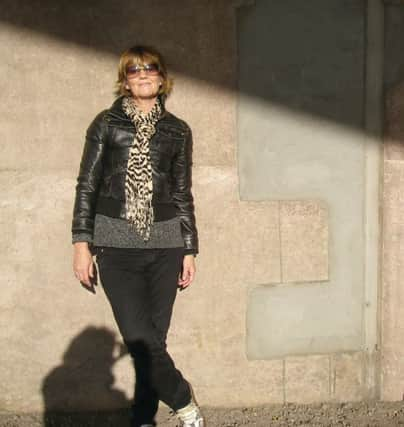The deaf ex-Coronation Street actress fighting for change


I can’t find Ali Briggs. We’ve arranged to meet at the West Yorkshire Playhouse at lunchtime and normally it would be quiet enough for us to spot each other.
Unfortunately a fire alarm has been triggered at Quarry House, the nearby Government building known as the ‘Kremlin’, which means there are more than 1,000 people pouring out of the building - and several hundred are taking refuge in the Playhouse. Asking the front desk to put out a call for Ali would be pointless: the actor is deaf.
Advertisement
Hide AdAdvertisement
Hide AdIn the end there’s an obvious work around - I simply call someone who knows what Ali looks like and can lead me to her. I explain this when we do meet and sit down for a chat.
“Exactly, that’s what it’s about, just finding a way to work out how to do something. That goes for access to the theatre, or trying to find me,” says Briggs.
Briggs is best known for her role in Coronation Street as Emily Bishop’s niece Freda Burgess for which she won several awards. At the minute, however, she’s taking a step back from her acting roles to act as an Agent for Change - that’s in capitals because it’s her actual title and it’s an important one.
She truly is an agent for a change that really needs to happen.
Advertisement
Hide AdAdvertisement
Hide AdA consortium of six theatres around the country, including Sheffield Theatres and West Yorkshire Playhouse, have come together to tackle a deep inequality in the industry: that of representation of disabled people.
“When I’m in most of the theatres where I work I am literally the only deaf person employed in the building. I mean, it’s 2016,” says Briggs. “It’s 2016 and I’m only allowed to go to the theatre on certain nights. I can only go on the nights that theatres decide they are going to have a signed performance, or a performance with captioning. If I’m not able to go that night, then I can’t see that particular play. Someone else has decided for me which night I’m able to go and watch something. It means I can’t go to the press nights or the big event nights when the theatres often don’t have provision for deaf people.”
And thats is where Briggs’ role comes in: It’s aim is to make theatres and the people who run them stop and think, consider if there are barriers to people with disabilities accessing their work and buildings.
Briggs’ role, due to last for 18 months, is funded by the Arts Council and sees her work 20 hours across the week, splitting her time between an office in Leeds and one in Sheffield. Her position is part of a scheme called Ramps on the Moon, which was also responsible for bringing The Government Inspector to the stage of the Playhouse in April. The play, which includes disabled and non-disabled actors, has been praised by critics.
Advertisement
Hide AdAdvertisement
Hide Ad“Everyone benefits. Audiences get to see good actors in great productions and deaf and disabled actors get the opportunities they should have,” says Briggs.
“It’s taken a long time, but we’re getting there.”
Ali Briggs was named the Royal Association for Disability and Rehabilitation Person of the Year for her breakthrough role in Coronation Street.
Her first post as an Agent for Change came at the New Wolsey Theatre in Ipswich before she was appointed via the Ramps on the Moon consortium and currently is helping six theatres with their policy on working with deaf and disabled people. The Government Inspector is at Sheffield Crucible to June 25.